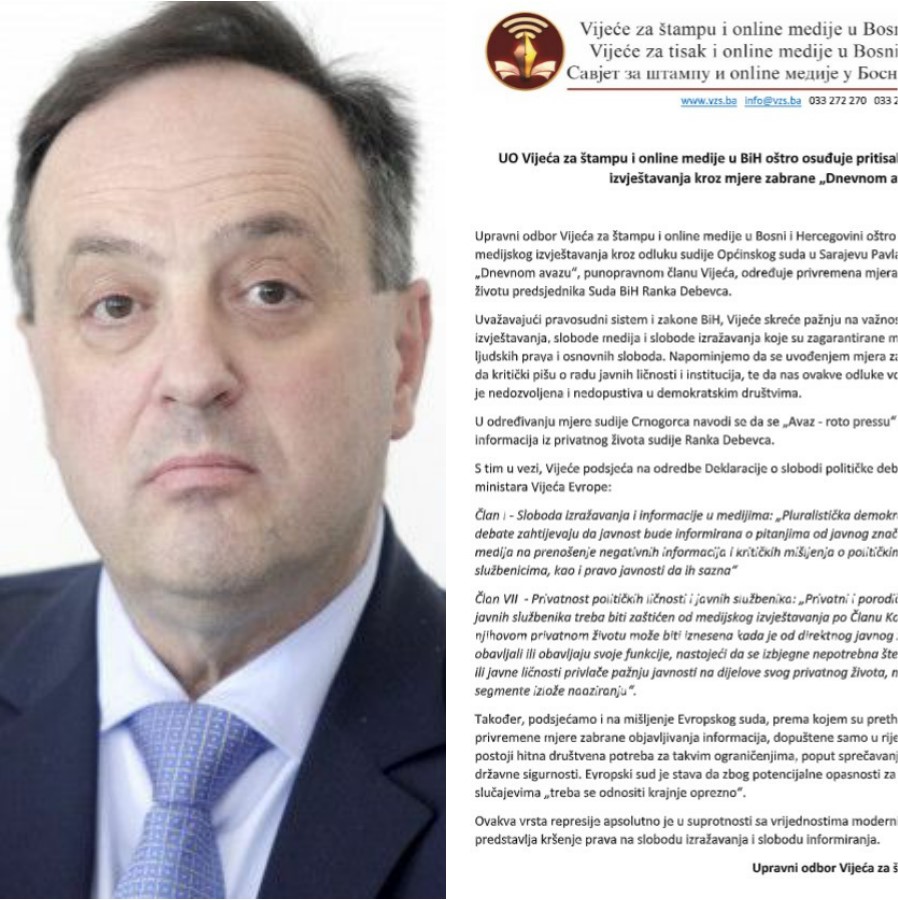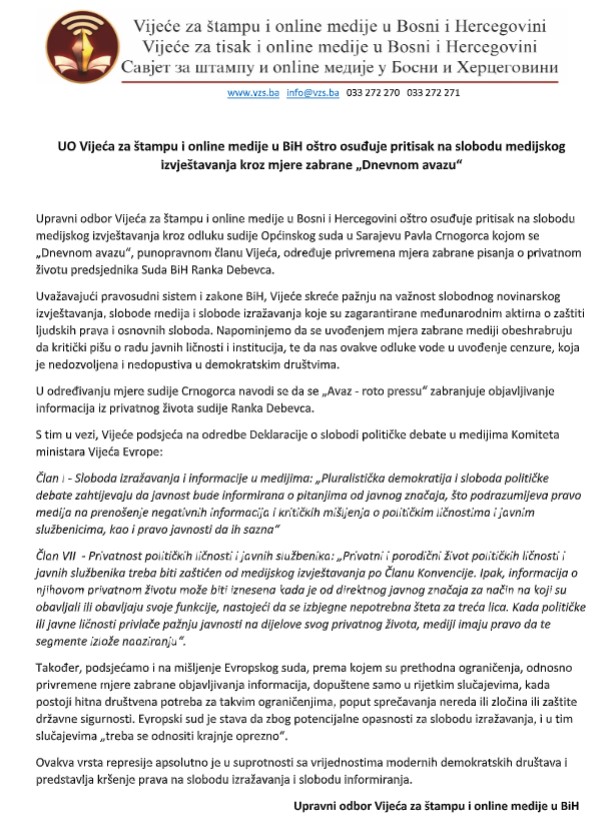After the judge of the Municipal Court in Sarajevo, Pavle Crnogorac, issued a temporary ban on "Dnevni avaz" from writing about the private life of the President of the Court of B&H, Ranko Debevac, the Steering Board of the Press and Online Media Council in B&H made statement.
You can read their full statement below:
The Steering Board of the Press and Online Media Council in Bosnia and Herzegovina strongly condemns the pressure on freedom of media coverage through the decision of Sarajevo Municipal Court Judge Pavle Crnogorac to impose a temporary measure of banning „Dnevni avaz“, a full member of the Council, from writing about the private life of the President of Court of B&H Ranko Debevec.
Respecting the judicial system and the laws of B&H, the Council draws attention to the importance of free journalistic reporting, freedom of the media and freedom of expression guaranteed by international acts on the protection of human rights and fundamental freedoms. We note that the introduction of prohibition measures discourages the media from writing critically about the work of public figures and institutions, and that such decisions lead us to the introduction of censorship, which is not allowed and inadmissible in democratic societies.
In determining the measure of the judge Crnogorac, it is stated that "Avaz - roto press" is prohibited from publishing information about the private life of judge Ranko Debevec. In this regard, the Council recalls the provisions of the Declaration on freedom of political debate in the media of the Committee of Ministers in the Council of Europe:
Article I - Freedom of expression and information in the media: „Pluralistic democracy and freedom of political debate require that the public is informed about issues of public importance, which includes the right of the media to transmit negative information and critical opinions about political figures and public officials, as well as the right of the public to know them.“
Article VII - Privacy of political figures and public officials: „The private and family life of political figures and public officials should be protected from media coverage under Article of this Convention. However, information about their private life may be disclosed when it is of direct public importance and it is reffering to the way in which they have performed or are performing their functions, seeking to avoid unnecessary harm to third parties. "When political or public figures draw the public's attention to the parts of their private lives, the media have the right to subject those segments to monitoring."
We also recall the opinion of the European Court, according to which previous restrictions, ie temporary measures prohibiting the publication of information, are only allowed in rare cases, when there is an urgent social need for such restrictions, such as preventing riots or crimes or protecting national security. The European Court is of the opinion that due to the potential danger to freedom of expression, and in these cases "extreme caution should be exercised".
This type of repression is absolutely contrary to the values of modern democratic societies and represents a violation of the right to freedom of expression and freedom to inform - it is written in the end of the statement of the Board of the Press and Online Media in B&H.



